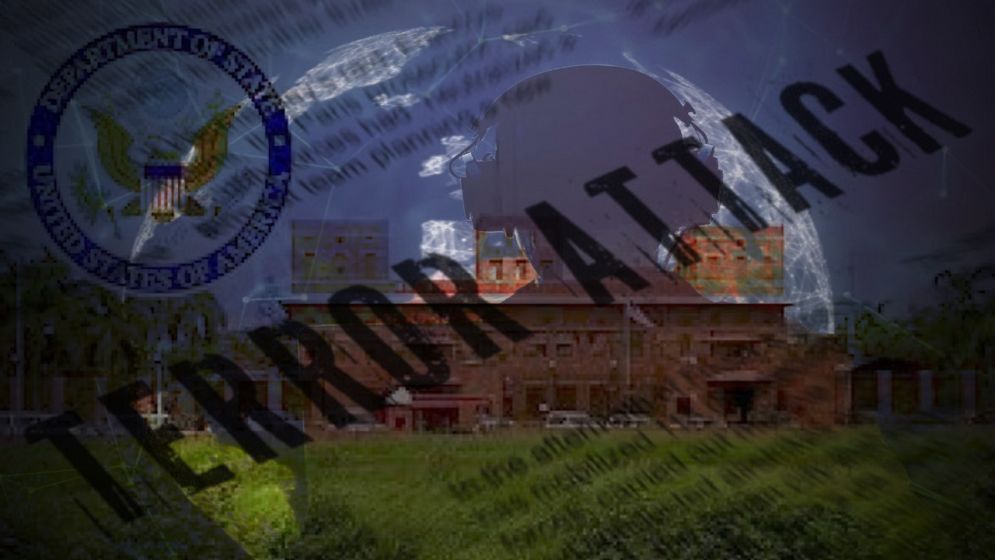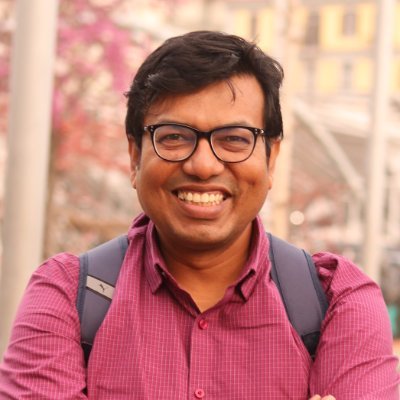Bangladesh swung into action after Washington flags Embassy threat

The interim government was jolted into action after intelligence revealed a chilling plot that militants were allegedly preparing to kidnap and murder a U.S. Embassy employee in Dhaka, either a Bangladeshi staffer or someone targeted for their religion.
Multiple sources confirmed to Bangla Outlook that the plan also included a wider assault on the embassy itself. Within days of the threat being flagged, counterterrorism officials moved in and arrested suspected operative Shameen Mahfuz.
At least four security officials working against interstate terrorism confirmed the plot, which involved militants scouting the embassy’s Baridhara compound under the guise of playing cricket nearby.
The groups flagged in the intelligence report are Jamatul Ansar Fil Hindal Sharqiya and Al-Qaeda in the Indian Subcontinent (AQIS). While the documents reviewed did not identify an exact target, investigators say the threat of a “lethal strike” was explicit.
Washington did not take the report lightly. Embassy officials in Dhaka swiftly raised alarm with the Bangladeshi government, though it remains unclear which officials were first briefed.
Records accessed by Bangla Outlook show that in June and July, U.S. Embassy Chargé d’Affaires Tracy Ann Jacobson held a series of high-level meetings with Army Chief General Waker-uz-Zaman, National Security Advisor Dr. Khalilur Rahman, and Law Ministry Advisor Dr. Asif Nazrul.
The embassy’s military attaché also engaged Bangladeshi security officials around the same time.
The timeline grows sharper: just four days before Mahfuz’s arrest was made public, on July 10, Jacobson’s successor, Chargé d’Affaires Megan Bouldin, paid a courtesy call on Home Affairs Advisor Lt. Gen. (Retd.) Jahangir Alam Chowdhury.
Sources say counterterrorism and security cooperation dominated the discussion. That same day, Home Ministry spokesperson Faisal Hasan issued a press release casting the meeting in more benign terms, citing discussions on “law and order, counter-terrorism, prosecution of cases, and even online harassment of young women.”
The statement struck a typical diplomatic tone: “The United States is a close ally of Bangladesh… With U.S. training and equipment, Dhaka Metropolitan Police’s CTTC unit has been modernized and made capable.”
But the timing–coming amid urgent U.S. concerns and days before the arrest–suggests Washington’s alarm may have been considerably sharper than the official readout indicated.
-68aeed2a9f956.png)
Underlying reasons
The Home Ministry’s press release painted the July 10 meeting as routine, but its language carried undertones of unease.
According to the statement, Chargé d’Affaires Megan Bouldin stressed that “every country is more or less at risk of terrorism and militant attacks. Bangladesh is no exception.”
In a pointed aside, she noted that during the Awami League’s tenure, many incidents of political repression had been “labeled as militancy to divert attention,” but cautioned that Bangladesh must remain vigilant nonetheless.
Home Affairs Advisor Lt. Gen. (Retd.) Jahangir Alam Chowdhury responded with categorical denial: “There is currently no militancy in Bangladesh,” he said, insisting that only banned political parties occasionally attempted to stage rallies, which law enforcement “strictly prevents.”
He added that agencies were under standing orders to stay on high alert, not just against terrorism but against “any kind of crime.”
Still, the advisor acknowledged that extra precautions had been taken around Baridhara, the diplomatic enclave housing the U.S. Embassy. Alongside regular security forces, the Coast Guard had been deployed.
Bouldin welcomed the measures but pushed for broader coordination, stressing that effective security hinged on constant information-sharing between police, intelligence services (NSI, SB), and specialized counterterrorism units such as CTTC and ATU.
Also present at the meeting were Khondaker Md. Mahabubur Rahman, Additional Secretary of the Public Security Division, along with U.S. Embassy officials Eric Geelan, Political and Economic Counselor, and Josh Pope, Political Military Affairs Officer.
Just days later, the Yunus government announced the arrest of Shameen Mahfuz under a case filed at Savar Model Police Station. Mahfuz, previously identified as the founder of Jamatul Ansar Fil Hindal Sharqiya, was no stranger to authorities–he had been arrested in 2011, 2014, and again in 2023 for militant activities.
His re-emergence at the center of a fresh plot underscores both the persistence of extremist networks in Bangladesh and the high stakes of U.S.–Bangladesh counterterrorism cooperation.
This time, investigators say, Shameen Mahfuz’s name surfaces with even darker associations: alleged links to Tehrik-i-Taliban Pakistan (TTP), one of South Asia’s most violent militant networks.
The case, filed by the police’s specialized Anti Terrorism Unit (ATU), accuses him of maintaining ideological and operational ties to the group. RAB-11 picked him up in Narayanganj on July 14; a Dhaka court approved five days of remand the following day.
The charges extend beyond Mahfuz. Six others–identified as Faisal, Engineer Imran Haider, Rezaul Karim Abrar, Asif Adnan, Zakaria Masud, and Sanaf Hossain–were also named.
According to the complaint, they had adopted TTP’s ideology and were preparing to take part in jihadi activities. One suspect, Faisal, allegedly traveled to Afghanistan via Pakistan and formally joined TTP; his companion, a young man called Yuvraj, was killed in Waziristan during a military operation.
-68aeed549efc3.png)
A pattern emerged
Mahfuz’s trajectory reads like a cautionary tale. A Rangpur Cadet College graduate and Dhaka University sociology alumnus, he once taught at several educational institutions, including the Open University.
Yet, over the past decade, he has repeatedly surfaced in militancy cases, with arrests in 2011, 2014, and 2023. Now, though not a named defendant in the ATU case, he is being interrogated on suspicion of deeper TTP ties.
When pressed for comment, ATU’s media spokesperson, Barrister Mahfuzul Alam Russell, refused to discuss the intelligence or the ongoing investigation. A senior ATU officer, however, confirmed that “effective measures” were being taken. RAB-11, the arresting unit, also declined to go on record.
Against this backdrop of tightening security concerns, the U.S. Embassy in Dhaka has opened talks with the Bangladesh Police to form a dedicated protective unit for its personnel.
The effort falls under the Special Program for Embassy Augmentation and Response (SPEAR), a U.S.-sponsored initiative designed to bolster frontline security in high-threat postings.
The push for a specialized protective force in Dhaka is not without precedent. After the 2012 attack on the U.S. consulate in Benghazi, Libya, Washington quietly rolled out SPEAR.
Over the past decade, more than 700 police officers across multiple continents have been trained under its umbrella, and its footprint has steadily widened as new security partners have signed on.
Today, SPEAR teams operate alongside U.S. missions in some of the world’s most volatile regions: from Abuja and Lagos in Nigeria to Dakar in Senegal, Bamako in Mali, Ouagadougou in Burkina Faso, Cotonou in Benin, and N'Djamena in Chad.
In East Africa, they cover Nairobi, Addis Ababa, and Juba. In Central Africa, they are active in Bangui and Kinshasa. The Middle East deployments include Erbil in Iraq and Tunis in Tunisia, while in Niger, a team is stationed in Niamey.
Their mandate goes well beyond guarding embassy gates. SPEAR units are trained to escort U.S. convoys during periods of political unrest, provide protection during election monitoring missions, and reinforce security around high-stakes diplomatic events.
For Washington, the program serves a dual purpose: safeguarding its personnel abroad while simultaneously upgrading the tactical capabilities of host-country police forces.
—

